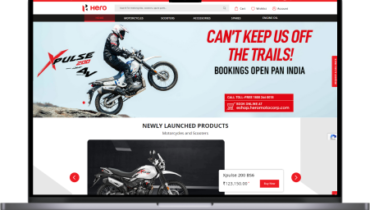A content delivery network (CDN) for WordPress can help WordPress website owners perform much better and in a much-optimized manner. It can help save server resources and allow businesses as well as website owners to easily handle large volumes of website traffic.
But there is one question? Does the WordPress website really need a Content Delivery Network? Moreover, which option should they go for when they are choosing a content delivery network for WordPress?
This post will answer all of these questions. And before these questions can be answered, let us now first understand what a CDN can do for all of us.
Benefits of using a Content Delivery Network (CDN) for WordPress
A Content Delivery Network (CDN) basically refers to a cluster of geo-located servers distributed all around the world. Now, since a cluster of servers is being talked about instead of an individual server machine, This simply means that a good-quality CDN can manage large volumes of internet traffic easily and on an effective footing.
CDNs basically hold static copies of a website’s data on their independent servers. Hence, as and when any business/website owner makes changes to a website, it is reflected on the CDNs server copy as well.
As Content Delivery Networks tend to be distributed geographically, visitors from different parts of the world can access the website quickly. Visitors are served content through the CDN servers, instead of the main one which the company paid for, working as a hosting server.
As such, the large advantage of having a Content Delivery Network for WordPress is that it can provide a performance boost for the website (meaning it becomes faster). Experts from a best DDoS protection service provider based in North York further explain that the website loads faster due to the reduction of geographical distance. Additionally, the load on the actual hosting server is minimized as well.
Certain CDN providers can also offer some security features, like firewalls, bot filtering, and DDoS Protection services. This hence keeps the website secure and away from malicious hackers and swindlers.
As it can be seen, Content delivery networks serve useful and vital purposes. But there still exists the same question; do companies really need to get one for their WordPress website right now? Let us find out.
Cases where the use of a content delivery network might not be needed
It is not the usual circumstance that a website always needs a content delivery network. There are times companies can do well enough even without using a CDN. Hence companies do need to take their time and focus on their requirements first.
For instance, if a company is targeting website visitors from a specific location or country only, then they should prefer hosting the website on a server located close to that desired location as much as possible. In such a case, having a geolocated web host is a better option in comparison to a geolocated CDN.
Similarly, if companies need just a CDN for filtering out wrong traffic from the beneficial one, Investing in dedicated cybersecurity solutions can be a wise choice as well. Though there are CDNs like Cloudflare having a dedicated focus on security, investing in a CDN just for the sake of security is not a wise option.
It should also be kept in mind that if a company uses a reputed WordPress hosting service provider, there are chances that their host offers an in-house created CDN solution as well as server-end caching for their content.
For most blog users and bloggers, this will suffice but it would be even better for them to check with their web host if they wish to learn more about their solutions for this purpose. In easier words, here are some factors proving a website might not need a CDN if and only if:
- The website is not growing at an exponential rate (and site owners do not expect it to grow that way either).
- The business is targeting localized visitors from a specific region instead of a global user base.
- The website does not serve a large number of media files, images, and the like.
- If the site owners still wish to avoid a CDN then they must invest in a good caching plugin for WordPress.
- The business’s budget does not permit the option of a Content Delivery Network for WordPress.



